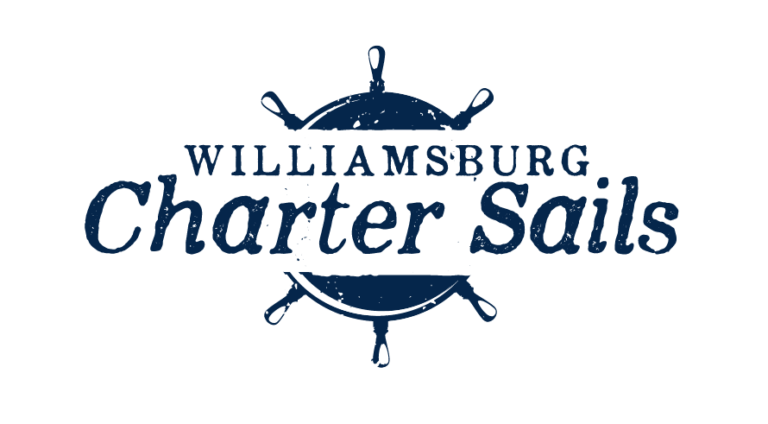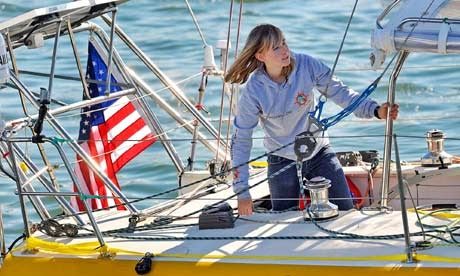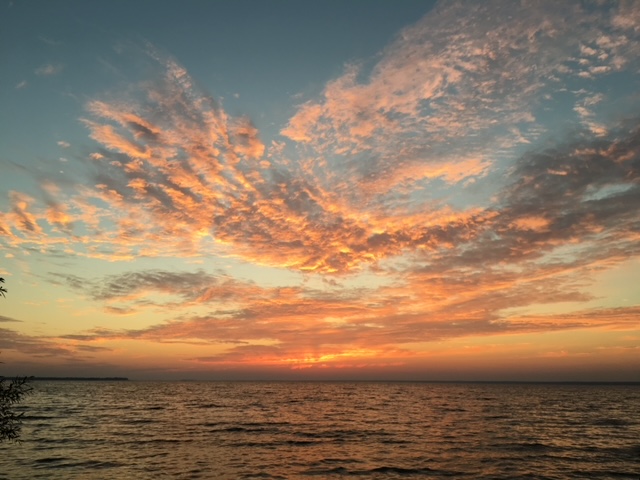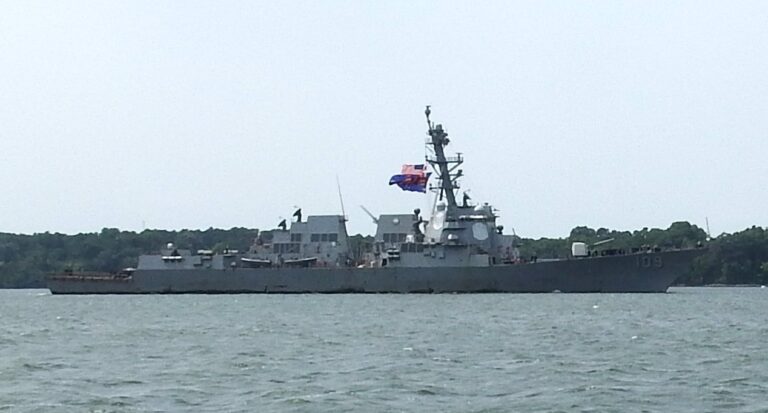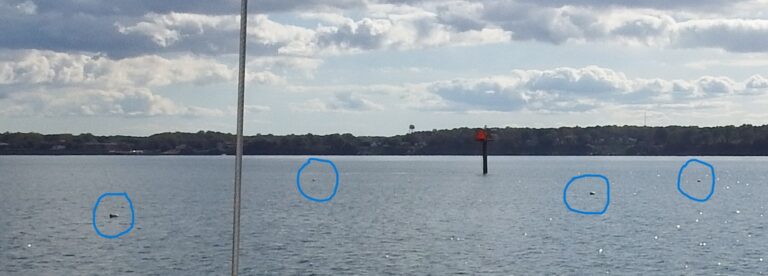One of the amazing things about sailing with guests on the York River is how they rise to the occasion by using appropriate sailing metaphors. They enjoy learning about the derivations.
To sail professionally is to be above board, even if one is adrift, against the tide, or at loggerheads with the crew. They recognize that all hands are on deck no matter what the circumstances. Every new job, it takes a while to learn the ropes even as the deck is awash with a roiling sea. And that’s just the letter A. Here are few more, taken from Seth Lindstromberg’s column on writing in HLT Magazine.
The tide has turned. = There has been a major reversal. “One team won for a while. Then the tide turned and the other team came out on top.”
In the offing = The ‘offing’ is just past the surf. A ship ‘in the offing’ may mean that the crew are waiting to come ashore. So, be in the offing means likely to happen in the near future.
The ndoldrums = The region near the equator which is often windless. In the days of sail, ships ran into the doldrums, making little or no progress for days and weeks on end. “I’ve been in the doldrums lately” = I’ve been listless and lacking in purpose lately.
Take the helm = The helm constitutes the steering wheel of a ship. So, take the helm means take control. To be at the helm means to be the boss.
Under one’s own steam = not pulled by another ship but instead making independent progress. “She needed lots of help while she was learning the ropes but now she’s operating under her own steam.“
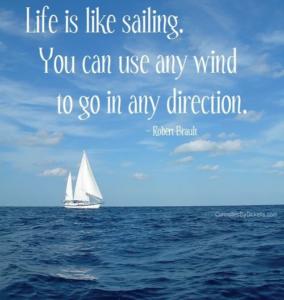 Learn the ropes = Learn the ropes of a sailing ship. Learn how to do a new job. “I’m still learning the ropes of my new assignment.” (In modern parlance, the ropes are called sheets.)
Learn the ropes = Learn the ropes of a sailing ship. Learn how to do a new job. “I’m still learning the ropes of my new assignment.” (In modern parlance, the ropes are called sheets.)
Take the wind out of the sails = If sailing ship A passes sailing ship B on the windward side, the sails of ship A will catch most of the wind and cause ship B to slow down. “Our new product will take the wind out of our competitor’s sails.“
Sail through life = Compared to rowing, sailing is easy. So, to sail through life means to make progress with little effort. “She’s always had brains, looks and luck. She has just sailed through life.”
Give one a wide berth = to avoid. A berth is a parking place for a ship. In the old days, if a ship was believed to be carrying disease, it would be given a wide berth so that other ships did not have to be too near it. “I don’t trust that guy. I’m going to give him a wide berth.”
To coast = to sail along the coast rather than out onto the deep blue sea. Coasting was less dangerous than blue water sailing. So,to coast means to invest little effort. Imagine a bright girl who is coasting in school. That means she isn’t studying. She manages to pass her courses but does not do as well as she could if she tried harder.
Deliver a broadside = direct shot of multiple cannons to a ship. Imagine a ship of war with cannons arranged along each side from one end of the ship to the other. If this ship fires all the guns on one side at the same time, that is a broadside. [Broad = wide. The side of a ship is wide.] If you are arguing with someone and you deliver a broadside, that means you attack your opponent with a very strong argument—for example, with lots of facts at the same time. “The Times delivered a broadside against government tax plans.”
Keel over = The keel is the bottom most part of a ship that runs from front to back. If a ship keels over, that means it turns over. If people keel over, they faint or collapse and fall over. “She turned pale and then just keeled over.”
Fire a [warning] shot across his bow = The bow is the front of a ship. If a warship wants another ship to stop, it may fire a warning shot across the bow. This means, “If you don’t stop, we will sink you!” In everyday life, to fire a shot across someone’s bow means give him a clear warning.
Batten down the hatches = a ‘hatch’ is a door in a floor or deck of a ship. A batten is a flat strip of wood. If a storm is coming, all the hatches must be very tightly shut. In the old days, one way of keeping hatches tightly shut was to nail battens across them. Batten down the hatches! means “Prepare for an emergency, get ready for danger.”
Give one leeway = Imagine that the wind is blowing the ship toward an island. The distance between the ship and the island is the leeway, or the shallow bottom that the ship has before it hits the island. The stronger the wind is, the more leeway the ship will need. In everyday life, “I wish the boss would give me more leeway.”
A different tack = A sailing ship can go in a completely straight line only if the wind is blowing directly from behind, which is not the norm. Ordinarily, in order to progress, a sailing ship has to go like this:
/\/\/ . Each change of direction is called a tack. In everyday life, try a different tack means to try a different method. “I tried to learn French by reading novels but it didn’t work so well. So I tried a different tack. I went to a language school in France.”
Run aground = If a ship goes into water that is too shallow, it runs aground and may get damaged. In everyday life, run aground means to experience a difficulty which stops progress. “Our plans ran aground on the fact that no one wanted to buy our product.”
Become stranded = Strand is an old word for beach. In the old days, if your ship sank and you got washed up on some beach hundreds of miles from home with no way to return, you were stranded. To be Stranded means to be stuck somewhere with no means of transport.
Everything’s shipshape = Be neat and tidy, in good order, as it should be.
To leave someone high and dry. = This might sound good, but not to a sailor. Suppose the tide is high and your ship runs aground on a sandy shoal. Then the tide goes out. There you are, stuck high and dry until the tide rises again. To leave someone high and dry means to leave them in a difficult situation that they might find it difficult to get out of. “He ran off with another woman and left his wife and kids high and dry.”
Let’s Go Sailing Metaphors
Check rates and pick a day for a sailboat charter. See reviews on Trip Advisor.
Sailing Metaphors Sailing Metaphors Sailing Metaphors
